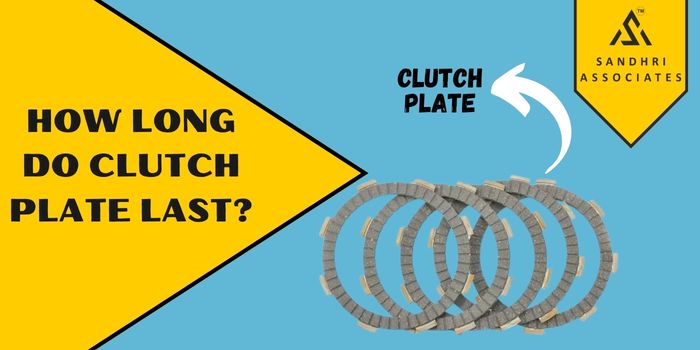The life of a clutch plate depends on several factors, Clutch plates are a key component in manual transmission vehicles. The clutch plate is responsible for engaging and disengaging the engine from the transmission. After all that process the clutch plates wear over time.
In this article, we’ll explore the variables that impact the clutch plate life period, as well as some of the factors like how long the clutch plate will last. These include the driver’s driving style, the type of friction material used, the vehicle’s horsepower and torque levels, and routine maintenance. Now let’s move toward the article.
What Is A Clutch Plate?
Clutch plates are the friction disc that connects your vehicle engine to the transmission. The Clutch plates separate and disconnect from the wheels when you press the Clutch pedal.
Clutch plates help in changing the gear smoothly. Clutch plates wear out sooner when you tow heavy loads and drive aggressively on roads. If you mostly drive your vehicle in traffic, there is a maximum chance that your Clutch plate will wear faster as compared to normal users.
What Causes A Clutch To Fail?
A clutch is a mechanical device that allows the engine’s power to be transferred to the transmission. Which sends the power to the wheels When the clutch is disengaged, the engine power is not transferred to the transmission, and the wheels are not powered.
There are a number of factors that cause a Clutch to fail some of them are:
- Normal wear and tear: A clutch is a consumable item, and it will wear out over time. The friction material on the clutch disc will wear away, and the springs in the pressure plate will get weaker. This will indirectly cause the clutch to slip, which means that the power of the engine is not being fully transferred to the transmission.
- Adjustment: If the clutch on your vehicle is not adjusted properly, it can slip or sound like chatter. This can be caused by a damaged clutch cable or by the hydraulic system.
- Low Engine oil: If you drive your two, three, and four-wheeler vehicle without the proper mention level, you may face engine failure which can cause a clutch to fail.
- Unwanted throttle: When the vehicle is stopped and not moving or not in gear, and somehow you push the accelerator, it can also be a cause of clutch failure.
- Weak Clutch Springs: After long-term use, the clutch spring loses its ability to be tightened and is also not able to come back to its actual location.
Symptoms Of A Bad Clutch
Here are some of the symptoms that you can face if your vehicle has a bad clutch:
- Difficulty in gear shifting: This was the main symptom of a bad clutch, A bad clutch cannot provide the proper connection between the gearbox and your vehicle engine. So whenever you face this type of issue don’t ignore it and fix this. Otherwise, it can be the reason for a Clutch failure.
- Soften gear pedal: If you are driving your vehicle for a long time and on a daily basis. So you can face this issue anytime it is common and the earlier symptom of a bad clutch. It causes a long push while shifting gears on your vehicle.
- Unwanted noise: While driving the vehicle, on a highway there is no noise and suddenly you hear some grinding noise from your engine so it is also a symptom of a bad clutch.
- Burning smell: In driving the vehicle if you smell like burning it’s the most highlighted and one of the most dangerous symptoms of a bad clutch.
So these are the major symptoms of a bad clutch which you can face, it is suggested to visit the mechanic or car experts to avoid any kind of dangerous issue. these are some symptoms which same go for the brake pad and affect the lifespan of brake pads.
The average lifespan of a Clutch plate is between 30,000 to 100,000 miles. The life of a clutch plate depends on the type of driving and the period of driving means how often you drive.
The clutch plate will last up to 48280.32 to 160934.4 km depending on your driving style.
when your Clutch is overused and overheated or you are in a long traffic jam so there are most chances of damaging your clutch.

